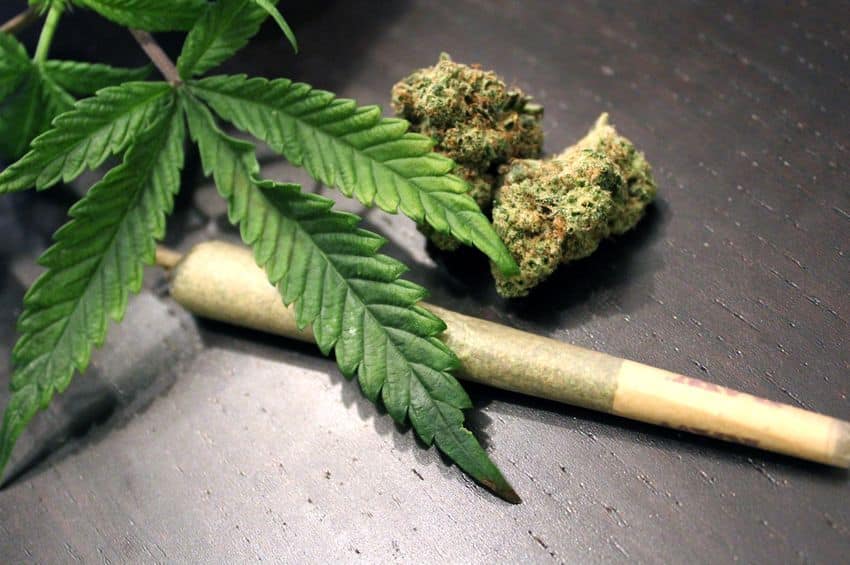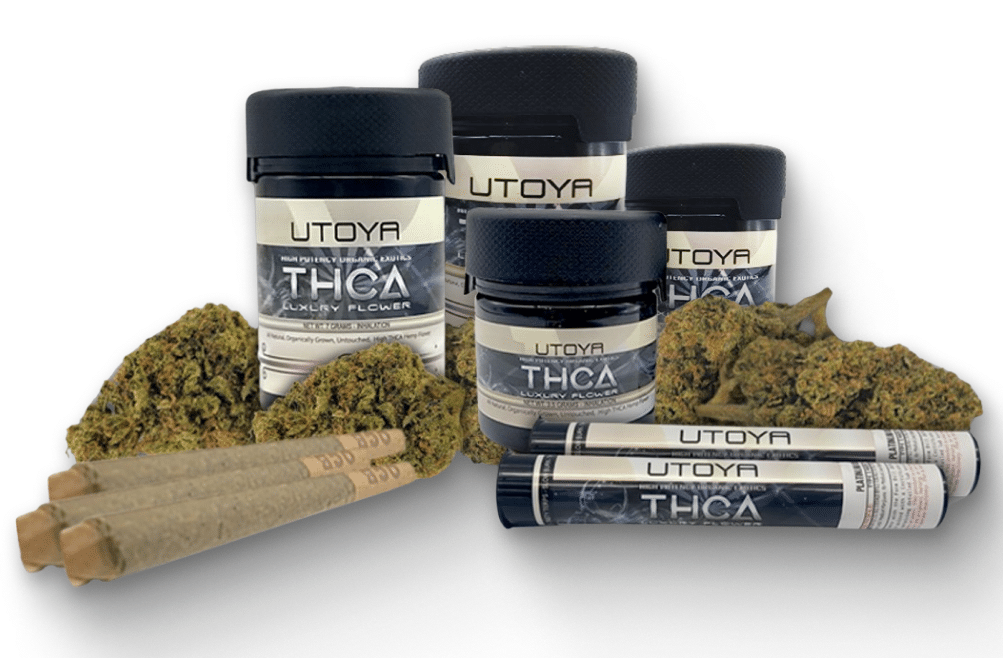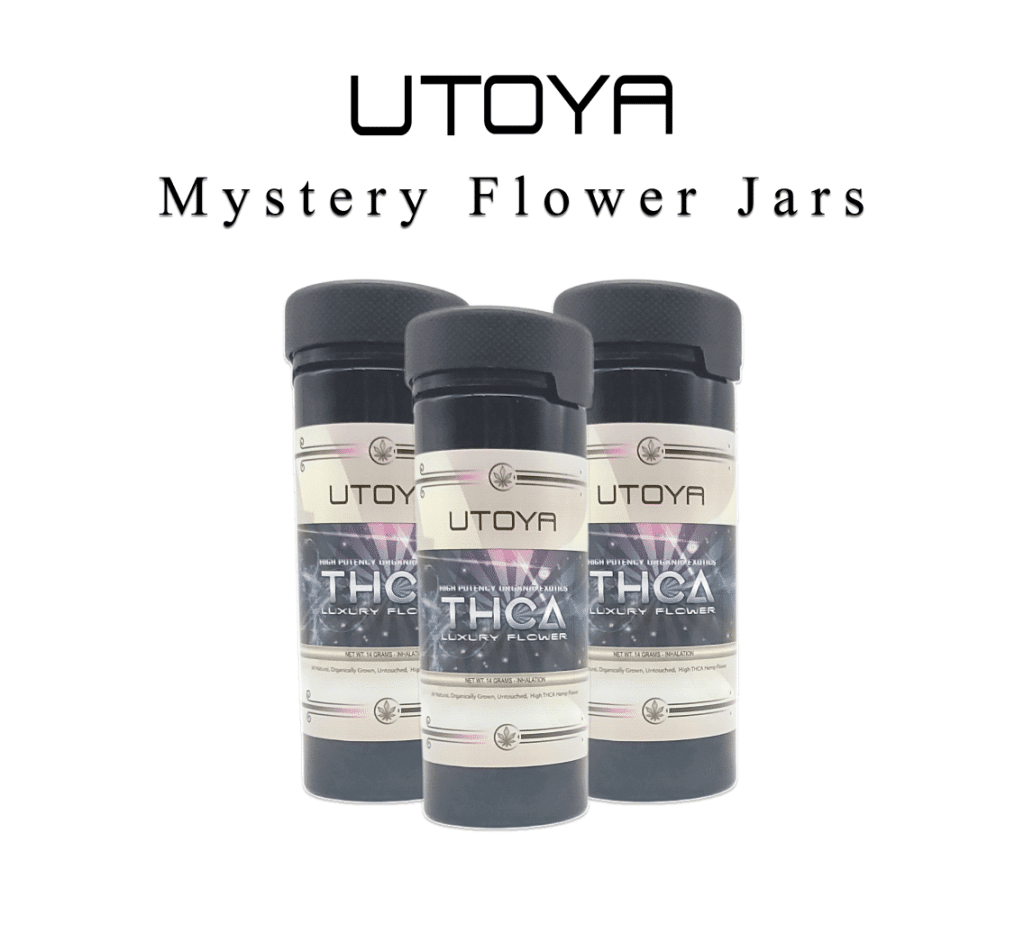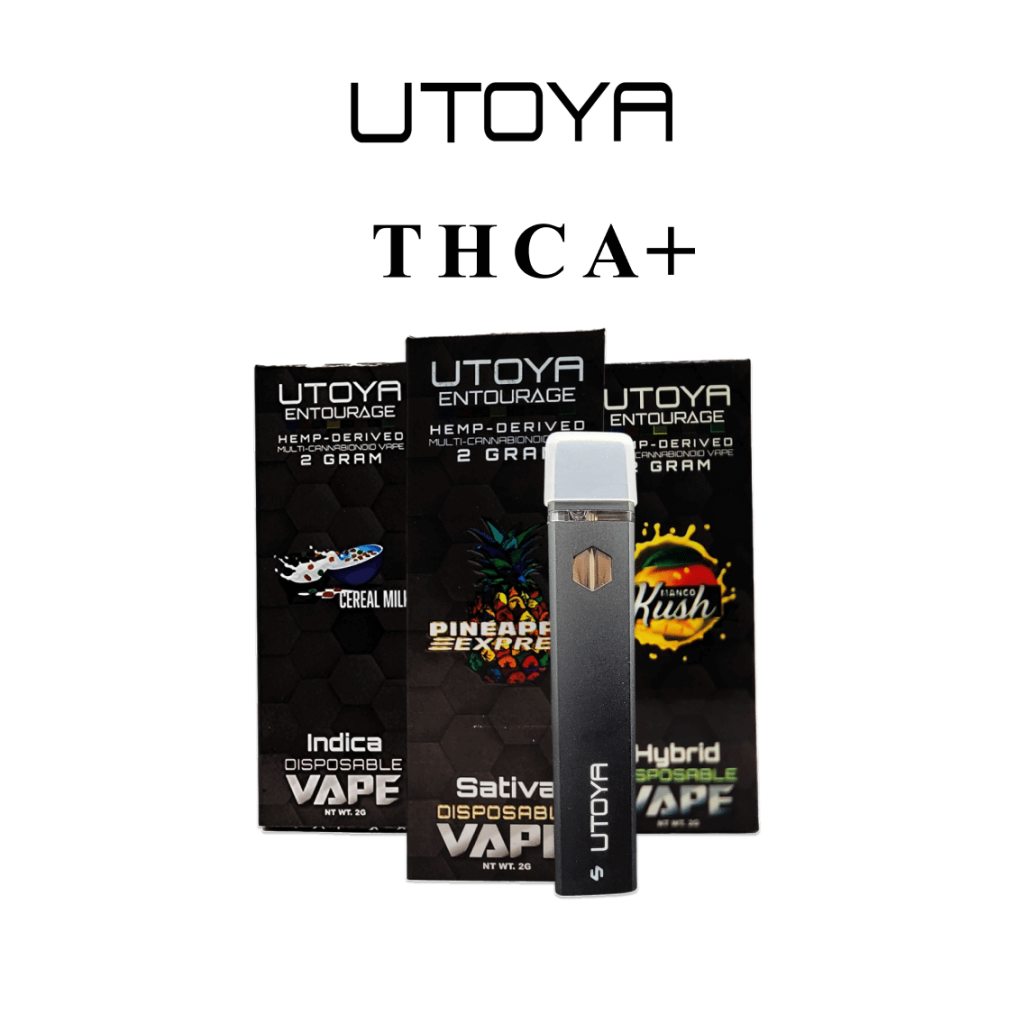What Is the Difference Between THC and THCA
What is the difference between THC and THCA? It’s a question that’s increasingly asked as cannabis has moved from counterculture to mainstream wellness. These two compounds sound nearly the same, yet they behave very differently in your body. If you’re shopping for flowers, tinctures, or edibles, knowing how they function can help you score the experience (or relief) that you want.
Since day one here at Utoya Organics, we’ve been all about transparency and education. That means explaining away the confusion and providing real, digestible information on what’s inside your cannabis and how it will impact you.

Breaking It Down: What Is THCA?
Tetrahydrocannabinolic acid (THCA) is a natural compound found in fresh, raw cannabis. It’s considered a “precursor” to THC, which means it eventually converts into THC, but only when exposed to heat (so put the super high thought on hold for a second).
THCA is non-psychoactive, so a few grams is a little interesting. So if you are juicing raw cannabis leaves or consuming a THCA-infused edible that hasn’t been heated, you’re not going to get high. Instead, you may be benefiting from some of its anti-inflammatory, neuroprotective, or anti-nausea effects. Interestingly, THCA also seems to have a high therapeutic window, aligning with the stories we often hear about cannabis being successfully used to see therapeutic effects without the buzz by patients who just want to be able to benefit from cannabis that way, supported by plenty of preliminary research and anecdotal evidence.
What Is THC?
THC — tetrahydrocannabinol — is the one most people associate with getting stoned. This is what happens when THCA is heated by smoking, vaping, dabbing, or baking. That heat removes a carboxylic acid group in a process known as decarboxylation and also turns THCA into THC.
THC binds to the CB1 receptors in the brain, which is how the potent psychoactive effects are explained. It’s also linked to relief from pain, insomnia, nausea, and lack of appetite. That’s part of why it’s an important ingredient in so many medical marijuana regimens.
But not everything is sunshine and snacks. For some people, particularly teens and people who are vulnerable/addicted, high doses of THC can lead to anxiety, paranoia, and even addiction.

What Is the Difference Between THC and THCA?
Let’s take a step back here and zoom out. In layman’s terms, what is the difference between THC and THCA? THCA is the non-psychoactive raw compound found in cannabis. When warmed, THCA transforms into THC, the component that gets you high. THCA acts in an auxiliary mode, with possible therapeutic value and none of the intoxication, while THC takes center stage, providing both euphoria and medical benefits, but with an increased risk of side effects.
That’s why understanding this distinction matters, especially when choosing cannabis products. Want something that helps your body but keeps your head clear? You might reach for a THCA flower or edible. Looking to unwind after a long day? A product that’s already been decarboxylated and contains active THC might be your go-to.
Forms of THCA and THC
THCA Products
- Raw Flower (Unheated): Great for juicing or low-temp infusions. Found in freshly harvested cannabis.
- THCA Diamonds: Pure crystalline form, usually dabbed for therapeutic effects without a strong high.
- Tinctures & Capsules: Allow for precise dosing, often used in wellness routines.
- Topicals & Patches: Offer localized relief without entering your bloodstream.
THC Products
- Smokable Flower: Classic way to experience THC. Immediate onset, easier to dose by feel.
- Edibles: Longer-lasting, body-focused high. Great for pain, sleep, and stress.
- Vapes & Concentrates: Fast-acting and potent, but better for experienced users.
- Topicals & Transdermal Patches: Non-intoxicating unless transdermal, which absorbs through the skin.
Therapeutic Benefits Compared
Benefit | THCA | THC |
Psychoactive | ❌ Non-psychoactive | ✅ Produces a “high” |
Anti-inflammatory | ✅ Strong potential | ✅ Documented |
Pain Relief | ⚠️ Still being studied | ✅ Widely supported |
Nausea Reduction | ✅ Promising effects | ✅ Strong for chemo nausea |
Appetite Stimulation | ❌ No known impact | ✅ Significant |
Neuroprotection | ✅ Investigated | ✅ Investigated |
Anti-Proliferative (Cancer-related) | ✅ Under review | ✅ Studied in some contexts |
Side Effects and Risks
THCA is generally considered very low risk, with few documented side effects. THC, on the other hand, has a more complex relationship with the body and brain:
- Short-term THC effects: dry mouth, red eyes, slowed coordination, paranoia (in some)
- Long-term THC effects: potential for dependency, memory issues, especially in heavy users
- Teen Use: THC can be particularly harmful to developing brains
- THCA Risk: Mostly unknown, but no psychoactive effects and minimal evidence of harm so far
At Utoya, our team is constantly reviewing research and lab-testing our products to ensure safety and potency.
Legality and Detection
This is where things get a bit tricky.
- THCA is federally legal under the 2018 Farm Bill if the product stays under 0.3% Delta-9 THC. But once you heat it? It becomes THC, and now you’re in legal gray territory depending on your state.
- Under federal law, THC is still an illegal substance, but many states have legalized it for medical use or recreation.
- Drug tests usually check for THC metabolites, though — even if you don’t feel high, consuming THCA can cause you to test positive if your body converts it.
How Long Do They Stay in Your System?
Depending on how often you use, THC can linger around in your body for weeks. THCA, once converted to THC, follows the same rules:
- Urine: up to 30 days
- Blood: a few days
- Saliva: 1–3 days
- Hair: up to 90 days
If you’re getting tested for work or court, best to play it safe—THCA isn’t invisible.
Treatment for THC Dependence
While THCA doesn’t carry a known addiction risk, THC can be habit-forming for some. People who use THC heavily and feel withdrawal when stopping (irritability, insomnia, mood swings) may benefit from:
- Behavioral therapy
- Support groups like Marijuana Anonymous
- Detox programs for chronic users
- Medications (off-label) for anxiety, insomnia, or cravings
At Utoya, we encourage responsible use and open conversations about dependency.
So What’s the Verdict?
The difference between THC and THCA comes down to activation and effect. THCA is the minimalist’s tincture: a potential therapeutic compound without the extensive high. THC is the main attraction, delivering euphoric, psychoactive effects and relief for a host of disorders.
If you’re in the market for wellness benefits without intoxication, THCA could be your hero. If you’re managing pain, stress, or sleep issues and don’t mind a buzz, THC could be more your speed.
At Utoya Organics, we believe knowledge is power. Whether you prefer THCA diamonds, high-THC flower, or some combination of those two, we have you covered with premium, lab-tested hemp and cannabis products and the transparency you need.
Have questions? Contact us at 813-697-4747 or browse our shop to see how we can work with your lifestyle.




